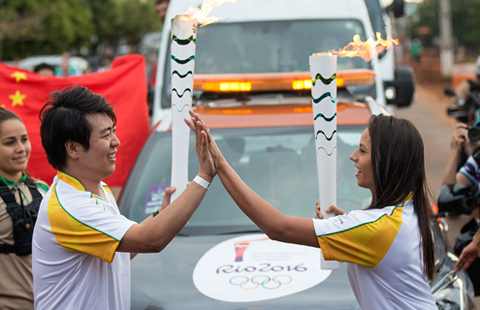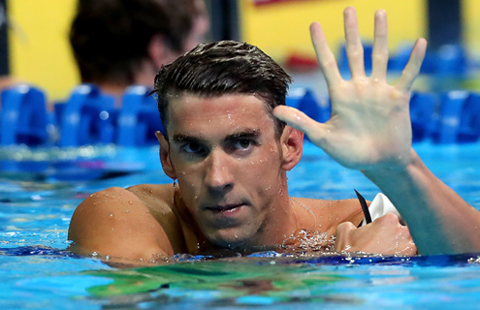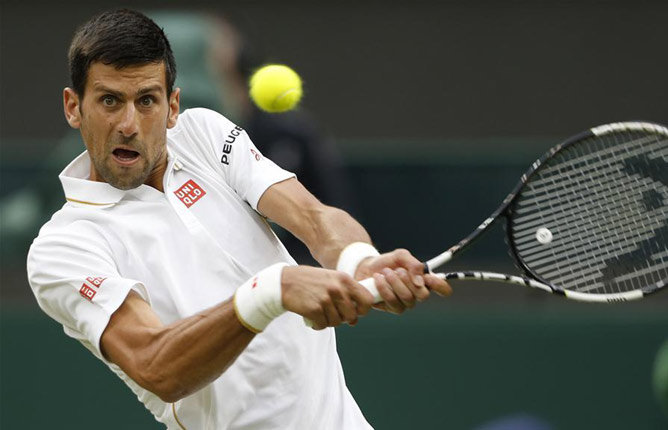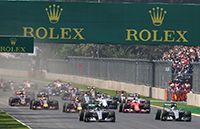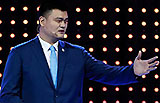Ban on anchoring putts proposed from 2016
(Agencies) Updated: 2012-11-29 10:05Golf's rulemakers proposed a ban on players anchoring long putters to their body on Wednesday, saying they wanted to outlaw the practice by 2016 in order to preserve the "skill and challenge" of putting.
Broomhandle or belly putters, pioneered by 2002 European Ryder Cup captain Sam Torrance among others in the late 1980s, are often tucked under the chin, against the chest or stomach.
They are swung in a pendulum fashion, helping to reduce the effects of nerves when lining up a putt.
The proposal by the Royal and Ancient (R&A) and United States Golf Association (USGA) will be discussed by players and the golfing community before being implemented.
Three of the past five major winners have used long putters but the governing bodies say putters should swing freely and not be anchored to any part of the body.
Some players such as 2011 USPGA champion Keegan Bradley, the first player to win a major using the anchoring technique, have already voiced their displeasure.
Announcing the proposal in a telephone conference, R&A chief executive Peter Dawson said they had acted because so-called anchoring had become the "preferred option" for many players.
"Our objective is to preserve the skill and challenge which is a key component of the game of golf," Dawson said.
"Our concern is that anchored strokes threaten to supplant traditional putting strokes which are integral to the longstanding character of the sport."
Swinging Freely
Mike Davis, executive director of the USGA, said swinging a club freely was the essence of the 600-year-old sport.
"The player's challenge is to control the movement of the entire club in striking the ball, and anchoring the club alters the nature of that challenge," he said.
"Our conclusion is that the Rules of Golf should be amended to preserve the traditional character of the golf swing by eliminating the growing practice of anchoring the club."
Davis said that the percentage of players anchoring putts had risen from two or three to 15 percent and that in some events 25 percent of the players had adopted the technique.
Bradley has been followed by compatriot Webb Simpson, at this year's U.S. Open, and South African Ernie Els, at the British Open in July, in winning a major with a long putter.
This year's US Ryder Cup captain Davis Love III was quoted as saying by www.golfchannel.com: "I think this proposal will create more division and controversy than impact scoring and be a distraction to the pro game, which is in a great place."
Tom Lehman said: "There are many young players who have grown up with the belly putter, never even using traditional methods. To tell them it is illegal or against the spirit of the game is way late, very unfair and in my opinion unethical."
Dawson said the R&A and USGA had not acted because of improved putting performance.
"This proposed rule change is not performance related," he said. "It's about defining the stroke.
"Webb Simpson and Keegan both said yesterday they accepted the governing body's authority and (Webb) said he was already practising for the new rule to be implemented."
Dawson expected the European Tour to endorse the proposals and many players are in favour.
"Careful and considered from the USGA/R&A on rule change banning anchoring of a golf club to the body. Only decision that could be made," tweeted 2010 U.S. Open champion Graeme McDowell.
"With the ban starting Jan 1st 2016 it will be interesting how quickly players start switching methods. Wait it out or start process now?"
Nine-times major champion Gary Player was also pleased.
"These long putters eliminate the nerves," the 77-year-old told Sky Sports.
"As a young man I worked for hours and hours on my mind to try and strengthen it so that when I came under pressure I could go about it. Now there is no tremble in your hands, you are anchored to your body and nerves are eliminated."
The proposed new rule would come into force on Jan 1, 2016.
"This timetable would also provide an extended period in which golfers may, if necessary, adapt their method of stroke to the requirements of the Rule," an R&A statement said.

